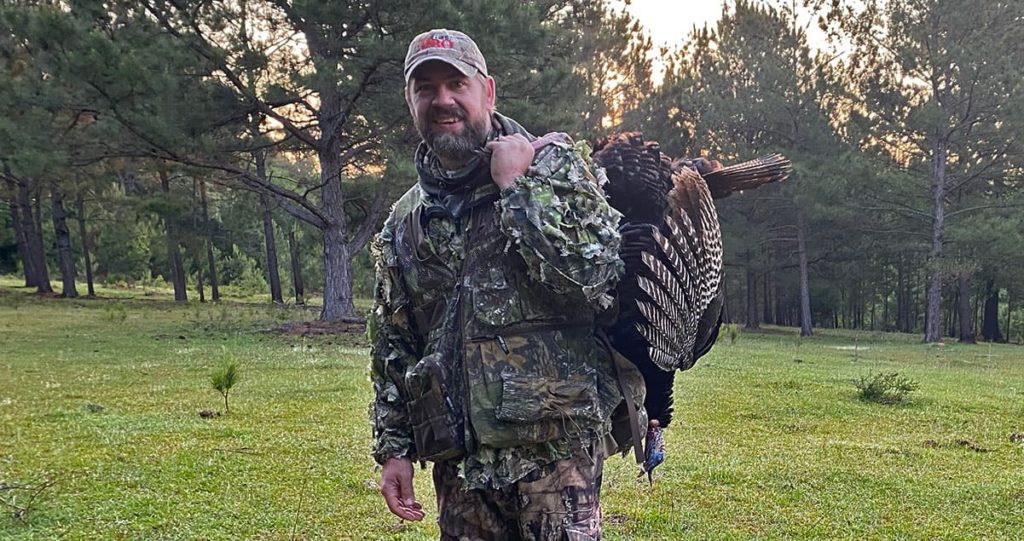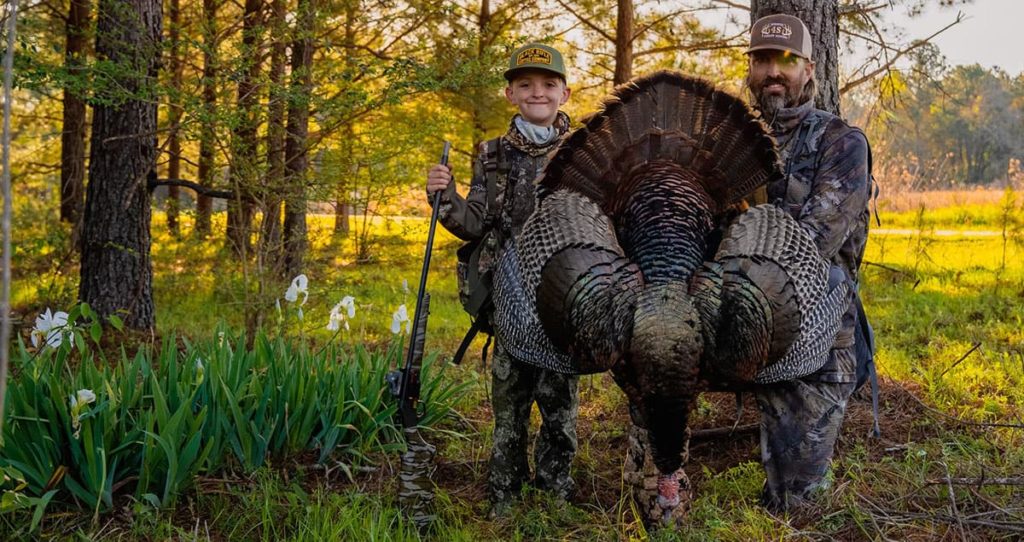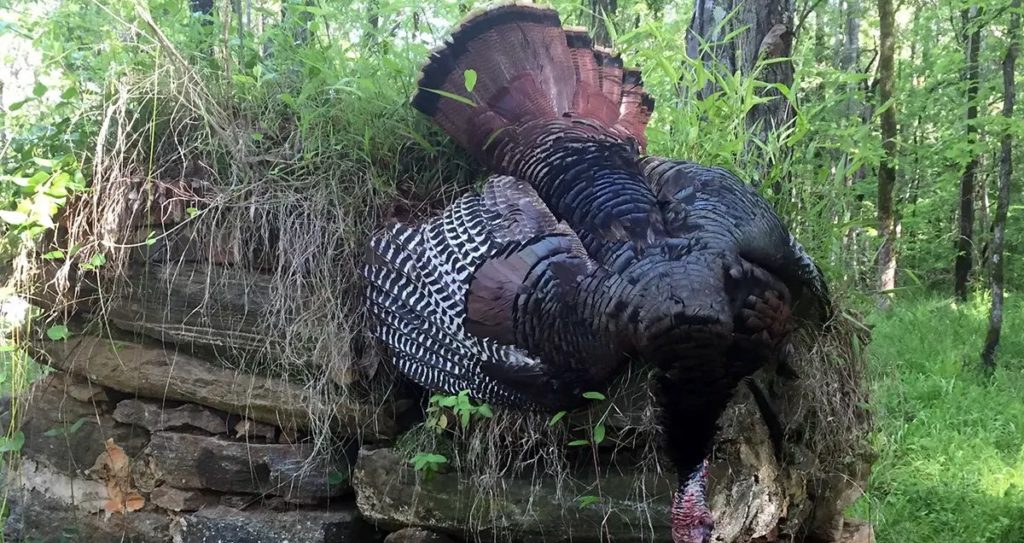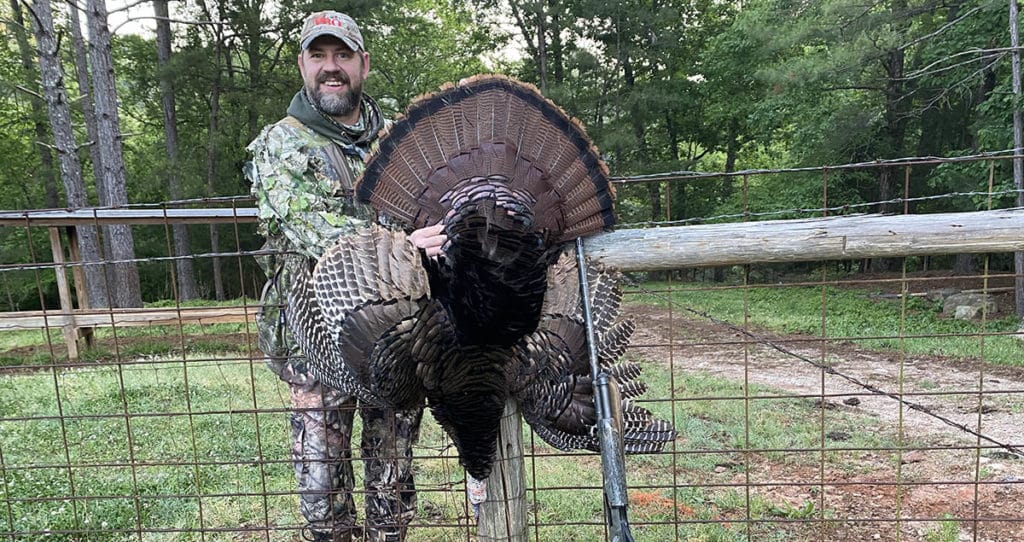Thousands of Georgia hunters hit the woods each fall and winter in pursuit of the state’s most popular small game — squirrels. And while most of that time is spent chasing the more common gray squirrel, the Peach State has a larger, less-common squirrel species that is equally challenging and equally good to eat.
The fox squirrel (Sciurus niger), known for its distinctive appearance and behavior, are both a challenging and rewarding quarry for hunters across the state. The vast forests and diverse landscapes in Georgia make it an ideal location for pursuing these elusive critters.
In this article, we’ll look at various aspects of fox squirrel hunting in Georgia, including their habitat, seasonal availability, recommended hunting methods, and conservation efforts.
Species Overview
Fox squirrels (Sciurus niger) are the largest tree squirrel species native to North America. They are commonly found throughout the eastern United States, including Georgia. They are known for their distinctive appearance, displaying several color phases, varying from silver-gray with a predominantly black head, to solid black, to a light buff or brown color tinged with reddish-yellow.
They have long, bushy tails, and their ears and snout are usually white against a predominantly black face. Measuring 18 to 27 inches in length and weighing 1 to 3 pounds, these squirrels can be identified by their unique morphological features and color patterns
Habitat
Fox squirrels prefer mature longleaf pine savannas, turkey oak sandhills, and pine flatwoods maintained with fire. They also utilize mixed hardwoods, mature pine, cypress domes and sloughs, and other various habitats with pines and oaks. In addition to their native habitats, they are equally at home in pastures and agricultural lands, and urbanized areas, such as parks and golf courses.
In forested regions, they tend to inhabit areas dominated by mature pines with interspersed hardwoods.
Food Preferences
Fox squirrels share quite a few food preferences with their gray squirrel counterparts, enjoying a variety of acorns and nuts from oak and hickory trees commonly found in upland pine habitats. Pine seeds are a staple for these critters, but they also feed on buds, fruits from different trees, and fungi. It’s worth noting that a tiny part of both gray and fox squirrel diets includes animal-based sources like insects, other arthropods, and even small vertebrates.
Georgia Hunting Regulations
It is essential for hunters to familiarize themselves with Georgia’s squirrel hunting regulations to ensure a safe and legal hunt.
The primary requirement for squirrel hunt in Georgia is a hunting license. Residents 16 and older must have a valid hunting license, while non-residents need a non-resident hunting license. These can be acquired online, by phone, or at licensed agents.
In Georgia, squirrel season begins August 15, 2023, and lasts through February 28, 2024, and hunters can pursue both gray and fox squirrels. The maximum daily bag limit is 12 squirrels per hunter.
Please note that some of the state Wildlife Management Areas (WMAs) have a limit on the harvest of fox squirrels.
It is important to note that regulations may change, so it is always a good idea to check with the WRD for the most up-to-date information.
Best Locations for Fox Squirrels
Fox squirrels can be found statewide, but are less common, more habitat specific, and have more of a sporadic, patchy distribution. You have a good chance to scratch out a few of these oversized squirrels on any of Georgia’s public lands with mature pines and a relatively open understory.
But if you’re looking for a few specific WMAs with a good, huntable population of fox squirrels, here are some options to consider:
First, you can find fox squirrels in abundance at Di-Lane Plantation Wildlife Management Area near Waynesboro. This location offers a diverse habitat, which includes pine, hardwood, and mixed forests, providing the perfect habitat for fox squirrels. Don’t forget to check out the numerous food plots that may help increase your chances of success.
Another excellent location is Clarks Hill Wildlife Management Area, located in the eastern part of the state. With over 12,000 acres of land, this WMA provides ample opportunity for hunters to encounter fox squirrels. Be sure to explore the extensive hardwood forests found in the area.
You may also want to consider hunting at the Cedar Creek Wildlife Management Area near Buckhead. This 40,000-acre property offers a mix of pine and hardwood forests, creating the ideal habitat for these squirrels. The numerous creeks and streams found throughout Cedar Creek WMA can serve as a great source of water and cover for fox squirrels.
Lastly, the Redlands Wildlife Management Area near Greensboro is another worthy destination. The area covers roughly 37,000 acres and offers an incredible diversity of habitats, including hardwood forests and agricultural fields.
Aside from just WMAs, the state’s big military reservations like Fort Gordon, Fort Stewart and Fort Benning also should have good fox squirrel habitat because of their timber-management programs.
While these locations are particularly known for their fox squirrel populations, remember that Georgia is home to many other public hunting lands that may provide equal opportunities. Always practice safe and ethical hunting, and be sure to familiarize yourself with the hunting regulations applicable to each location.
Hunting Tactics and Techniques
Fox squirrel hunting in Georgia requires a combination of skill, patience, and knowledge of the squirrel’s habits. There are several tactics and techniques that hunters can use to increase their chances of success. It is important to choose the right approach based on the time of day, season, and terrain.
Some of the most effective tactics for fox squirrel hunting include:
- Still hunting: This involves moving slowly and quietly through the woods, stopping frequently to scan trees and listen for sounds. Remain hidden by using natural cover and camouflaging clothing.
- Stalking: Identify areas where fox squirrels are likely to be feeding or resting, such as near nut-bearing trees. Move cautiously and quietly through the area, watching for movement or listening for their distinctive barking call.
- Using a squirrel call: Mimic the fox squirrel’s bark or distress call using a call device, which can draw squirrels out of hiding.
It is also important to consider the terrain and vegetation when planning your hunting strategy. Consider using the following techniques based on your surroundings:
| Terrain/Location | Techniques |
| Dense hardwood forest | Focus on still hunting or stalking, as visibility may be limited. |
| Edges of fields or clearings | Utilize treestands or ground blinds to remain concealed while waiting for squirrels to emerge. |
| Riverbottoms or swamps | Expect squirrels to be more active in these areas, as they often contain an abundance of food. Employ stalking techniques while keeping an eye out for high branches where squirrels may rest. |
Remember that fox squirrel hunting in Georgia is a sport that demands patience and perseverance. By applying these tactics and techniques, you can improve your chances of success in the field.
Conclusion
Fox squirrel hunting in Georgia can be an exciting and rewarding outdoor activity for both experienced and novice hunters. With proper planning and adherence to the state’s hunting regulations, it can also be a sustainable and responsible pastime.
The key to a successful hunt is knowledge of the fox squirrel’s habitat and patterns, as well as the best hunting techniques and equipment to use. Georgia is home to a diverse landscape, which provides plenty of opportunities for hunters to enjoy this pastime in various environments.
Remember to always practice ethical hunting, focusing on the sustainability of the species and its habitat, and being mindful of your impact on the environment. By following these guidelines, fox squirrel hunting in Georgia can continue to be a cherished tradition for years to come.








I have plenty of fox squirrels on my farm in south Georgia. I may have to start hurting them.